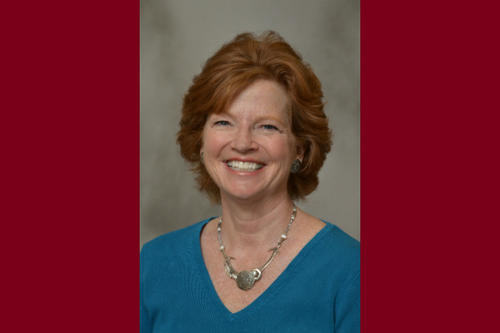
October is both National Dental Hygiene Month and the 100th anniversary of the dental hygiene program at the University of Minnesota. Priscilla Flynn with the School of Dentistry explains the importance of starting healthy dental hygiene habits at a young age.
Q: What does it mean to have good dental hygiene?
Prof. Flynn: Dental hygiene focuses on prevention. Good dental hygiene includes behaviors that are known to prevent or reduce oral diseases. These include not smoking and limiting alcohol consumption to prevent oral cancers; reducing risk factors for orally-transmitted diseases, such as human papillomavirus (HPV); using fluoride products and sealants to prevent cavities; and limiting snacking and removing dental plaque to prevent gum disease.
Q: Why is it beneficial to have a healthy mouth?
Prof. Flynn: The eyes may be the window to the soul, but our mouth is the window to general health. We know oral and general health are linked, and that bacteria from the mouth can make their way into the lungs and bloodstream — exacerbating existing conditions. Untreated tooth decay can lead to abscesses and the infection can cause severe pain, tooth loss or progress to a more severe general infection that may result in death. Gum disease is not only linked to bad breath, which is tough on your social life, but can progress to tooth loss. Oral cancers, including the recent rise in HPV-related oropharyngeal cancers that occur more frequently in younger men, can be detected early for a better prognosis or prevented by limiting risk factors. A healthy mouth, in addition to being free of disease, has been associated with psycho-social benefits such as greater self-esteem and confidence.
Q: Why is it important to start positive dental hygiene habits at a young age?
Prof. Flynn: Habits started at a young age are more likely to be retained long term. Parents can instill good habits by serving healthy meals, limiting snacking between meals and assisting children in twice daily brushing with a fluoride toothpaste. Start taking children for dental visits by age one. The dental team can acclimate the child to the dental setting and identify any conditions that may be apparent at the earliest stage. Keeping baby teeth in good condition is an important step toward assuring healthy permanent teeth in the future.
Q: What are two teeth cleaning habits parents should teach their children from a young age?
Prof. Flynn: Brushing at least twice daily with a fluoride toothpaste and cleaning between the teeth with dental floss or another interdental device.
Q: What else are you doing to further public understanding of dental hygiene as it pertains to youth?
Prof. Flynn: My team recently completed a study of dental decay among Somali mothers and their young children. We found that children’s decay was very similar to the U.S. average and 30 percent lower than African-American children. At the beginning of the study, we intended to use the results to inform an educational intervention. Therefore, an additional study could learn what Somali moms are doing to keep their kids healthy and be shared with the broader public.
I’m also part of a team led by Dr. Richard Lee that recently completed a study intended to improve children’s health outcomes. Text and recorded messages were sent to Somali parents of children under age three on a broad range of health topics. While results are preliminary, we will determine if families receiving the messages resulted in adherence to well-child metrics. My dental hygiene and dental therapy students develop and implement service learning projects, most of which involve children in underserved settings. They provide multiple educational sessions, oral screenings and fluoride varnishes to improve oral health.
Priscilla Flynn is an associate professor in the School of Dentistry. Her research interests are oral health literacy, health disparities and health equity, immigrant and refugee health, and women’s health. Her current research is focusing on the adapting and testing of psychological measurements of oral health literacy instruments; evaluating the effects of social determinants on oral health in immigrant and refugee populations; evaluating competency and student attitudes toward treating underserved populations; and rural dental hygienists' use of communication techniques with low oral health literacy patients.
Flynn co-founded the Network for Women’s Life and Health, a non-profit community organization serving low-resource women and their families in Southeastern Minnesota and Southwestern Wisconsin.
About “Talking...with U of M”
“Talking...with U of M” is a resource whereby University of Minnesota faculty answer questions on current and other topics of general interest. Feel free to republish this content. If you would like to schedule an interview with the faculty member or have topics you’d like the University of Minnesota to explore for future “Talking...with U of MN,” please contact University Public Relations at [email protected].
- Categories:
- Health




